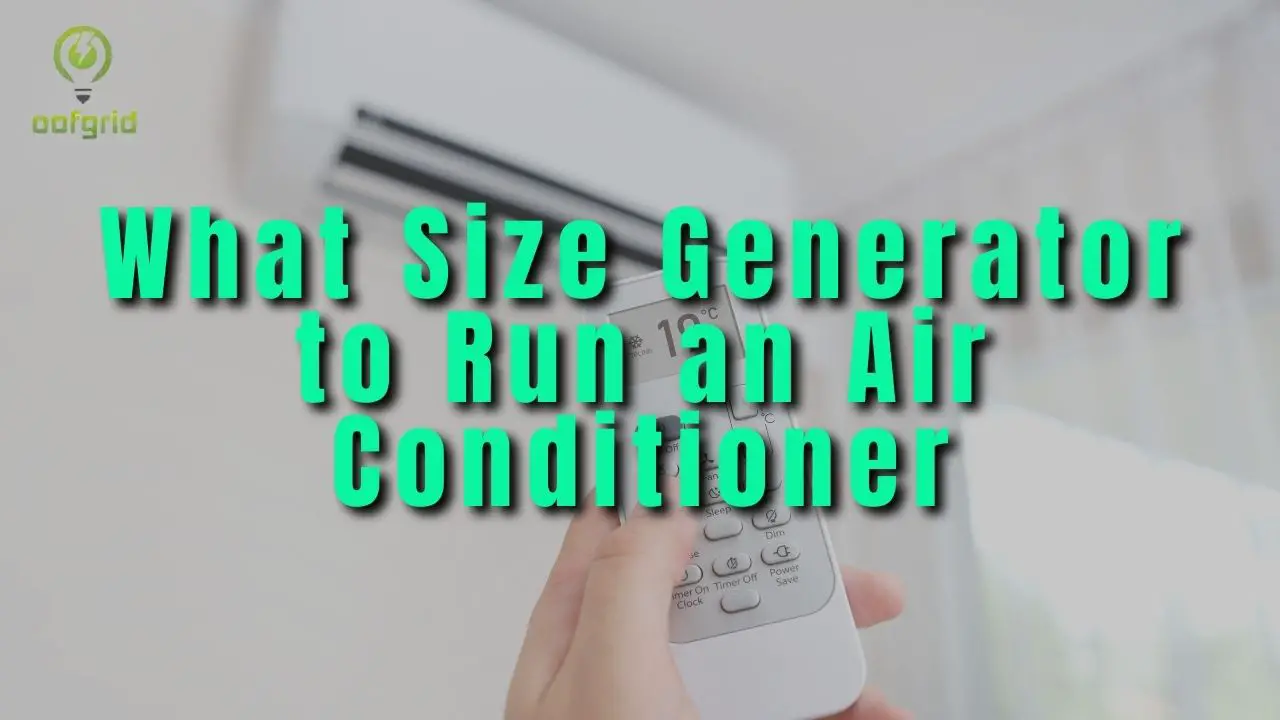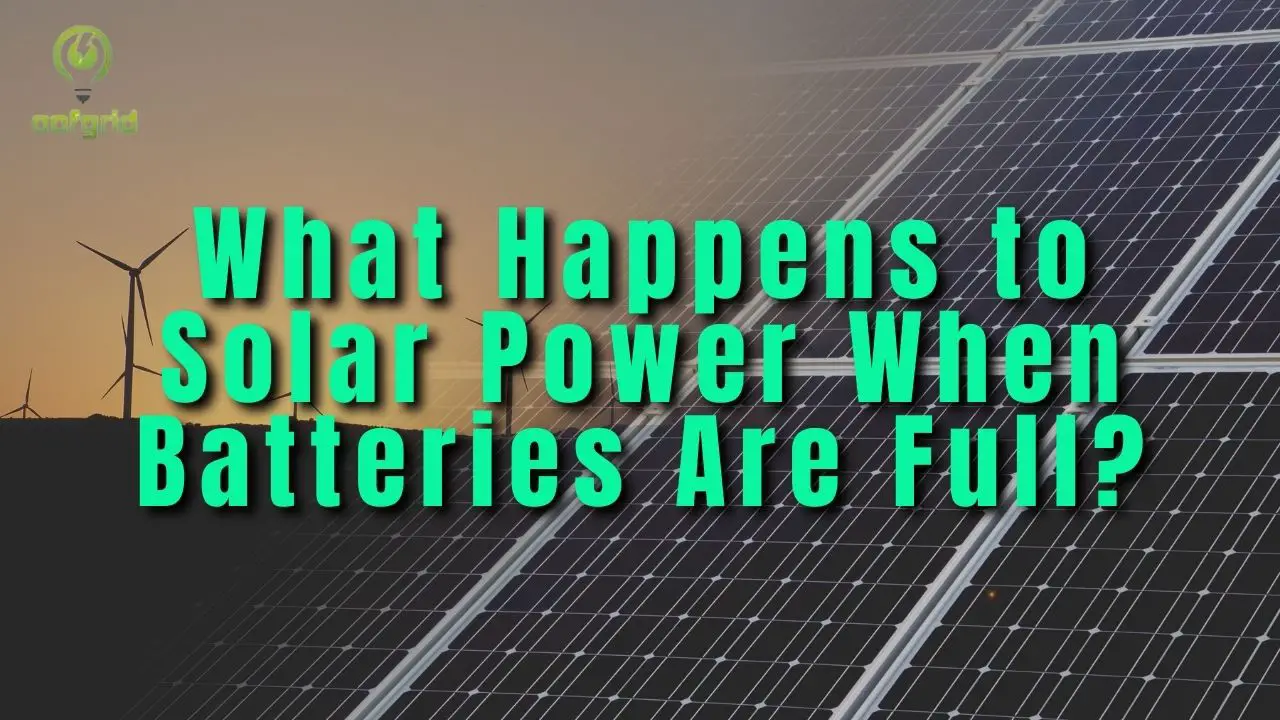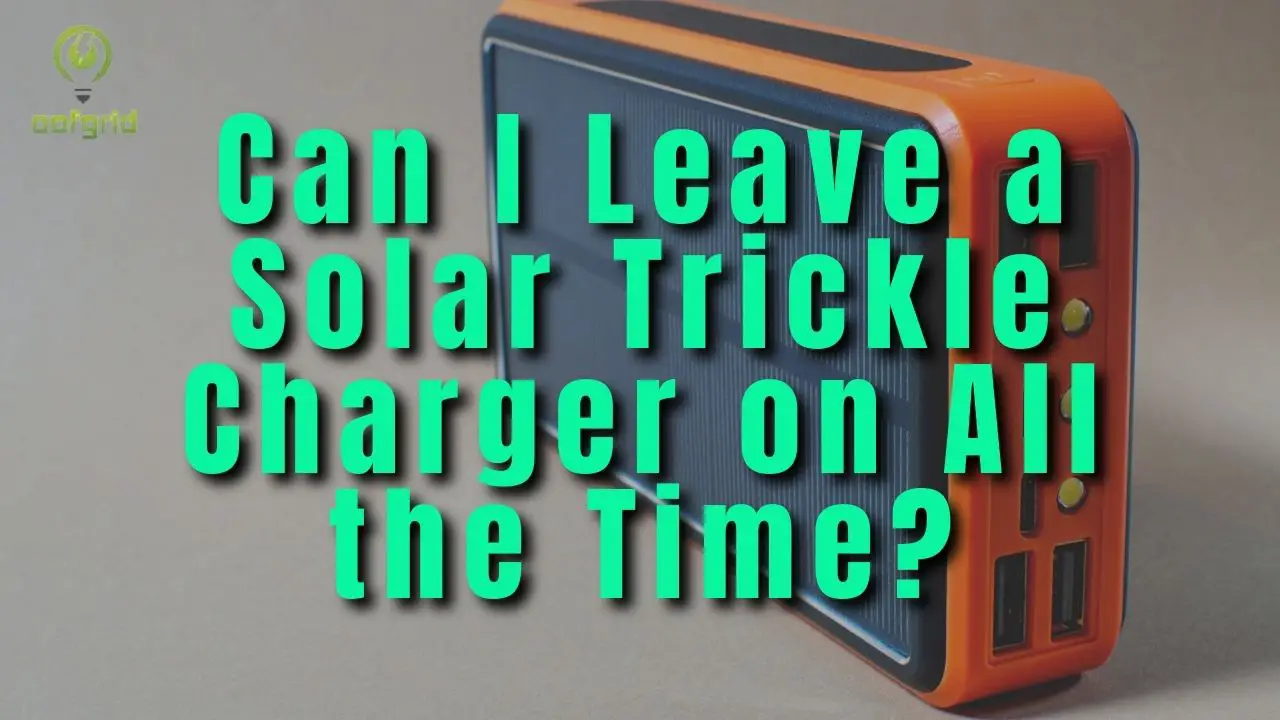There are many reasons these days to take a quiet portable generator with you on vacations, fishing trips, and family camping trips; not least to keep your children’s iPads charged to keep them quiet.
But with a bewildering array of portable generators and power banks to choose from, which one is best? Even solar-charged power banks have fans to keep them cool which makes a noise.
My family loves to go walking in the woods and forest and have many camping trips in places where noise is not permitted.
However, if we’re staying longer than 24 hours, we still need to power and charge our phones and devices. Or, simply run some lights at night. We, therefore, need a reliable power source that is not only small, light and reliable but also quiet.
Let’s take a look at our Top 5 Quietest Portable Generators that will cover all kinds of power needs from simple phone charging to running a small fridge.
Contents
5. Honda EU2200i 2200-Watt
You thought portable generators had peaked, and then the Honda EU2200i turns up. The 120cc Honda motor will last up to 8.1 hours on 0.95 gallons of fuel under quarter load. The EU2200i generates 15 amps at 120 volts and will work in parallel with other Honda generators.
Honda’s 4-stroke piston travels on a horizontal shaft, with an overhead camshaft, part of the reason the engine is so quiet. 47 decibels of noise emission at 25% power is incredible — you would struggle to hear it running in a library.
There is one 12V DC output rated for 100 watts and dual 120-volt standard sockets rated for 15 amps. The EU2200i will power up to 1800 watts of electronics with ease as well as an extra 400 watts to cover power spikes from fridge pumps.
You would think it unlikely, that with all this power and soundproofing, this unit would only weigh 46 pounds. But, the EU2200i is one of the best generators for camping currently available.
- Starting 2200W — Continuous 1800W
- Fuel Type: Gas
- Capacity: 0.95 gals.
- Tank Run-Time @ 25% Load: 8.1 hrs.
- Noise Level @ 25% Load: 48 dB running 68dB surge
- Weight: 47 lb. (21.32 kg).
- Warranty: 3 Years
Pros
- Powerful enough to run a standard fridge through the night.
- Extremely quiet. Incomparable to other generators for camping
- Reliability is second to none
- Fuel efficiency is impressive for the size of the engine.
- Plenty of smooth and consistent power.
Cons
- It should have a bigger fuel tank.
- Not the cheapest generator
- It should come with a cover for storage. Honda does sell one separately.
See the latest prices on Amazon
4. Energizer eZV2000P
The stand-out feature of this generator is its weight. One of the lightest portable generators we have tested so far, with over 2000 Watts of power which is enough to run small cooking appliances, lighting, and charge any electrical devices. We really liked the Eco-Mode to throttle the engine to meet on-demand loads which will save not only fuel but also wear and tear on the unit.
The portable unit was well constructed and felt tough and protected from all the abuse these units often get from being put in and out of the car or RV. The tough plastic shell withstands plenty of knocks and bangs. If you do have any issue with your unit you can rest assured that you’re covered with their 3 Year warranty.
The small, compact but powerful 79cc engine is enough to power for most camping trips, small RV and camper vans, catering trailers, and small industrial tools. Not to mention a handy backup for your fridge when confronted with a power-out.
We managed an impressive 12 hours run time from a full tank of gas running on a 25% load. This would be plenty for most days’ camping or home DIY jobs.
This unit, although powerful will not be enough to run a larger RV on its own. However, with the correct parallel cable, you can connect two units together which will give you enough power to run every item in your RV including a small AC unit.
- Starting surge power – 2000W
- Running Watts – 1600W
- Fuel Type – Gas Powered
- Fuel Capacity – 3.4L (0.9 Gal)
- Outlets – 2x 120V (13.3A) 1x 12V 5A DC 1x Parallel Port
- Noise Level: 58-69 Depending on load
- Weight: 44lbs
- Warranty: 3 Years
Pros
- USB Sockets
- Lightweight and easy to carry, with a large handle
- Eco-Mode makes the fuel last when the generator runs on stand-by
- It will work in parallel with other energizer Generators with the connecting kit
Cons
- May struggle with a large refrigerator but fine for smaller appliances
See the latest prices on Amazon
3. Champion 3500-Watt Dual Fuel
A very economical generator, which can use regular gasoline or propane. The generator comes with a hose connector to hook up to a regular LPG bottle that you would use to run a BBQ. Propane is cheaper to use as a fuel and much cleaner.
Using propane, the engine with have less issue with clogging when it goes into storage: Unlike gasoline, which will need to be drained from the carburetor and fuel tank, if it sits for more than a couple of months.
This is a recoil start engine, so it does not rely on a starter battery that could go flat. And produces up to 3500 watts for your RV, through a trusted Volt Guard Surge protector. The outlet includes a TT-30R for RVs and a locking L5-30R, more common on campers. There are also two 120-volt standard sockets.
There is no GFCI socket on this inverter. All information on generation and draw-down are on the Intelligauge, which rotates through the figures. A simple unit with everything easy to get at.
- Starting 4375W — Continuous 3500W.
- Fuel Type: Dual-Fuel (gas or propane).
- Capacity: 3.4 gals.
- Tank Run-Time @ 25% Load: 9 hrs 10.5 hrs on propane.
- Noise Level @ 25% Load: 68 dB.
- Weight: 104.9 lb. (47.58 kg).
- Warranty: 3-Year.
Pros
- Incredible price considering the generating power.
- Dual-Fuel makes it much more economical to run.
- Portable and small.
- Sockets for RV, Campers, and regular appliances.
- Pretty quiet at 68db
Cons
- No wheels, though you can buy them separately.
- It does not have any form of noise insulation, which would be easy to do.
See the latest prices on Amazon
2. Generac 6866 iQ2000
An iQ2000 will run in parallel with another iQ2000, but it needs the bespoke Generac connector kit to do so. Even without it, it will still produce 13.3 amps at 120 volts, with a peak of 18 amps.
Plenty for running a fridge or a small electric cooker in a camper. The unit has a grounding bolt, to make using large appliances safer.
The 80cc 4-stroke engine is of Generac’s own design, with classic overhead valves. The manufacturer claims the engine to be quieter than a Honda — other tests put the noise level at around 60 decibels. 60 decibels is still a low level of noise, around the level you would be talking in a restaurant.
There are two 120-volt standard sockets, which are parallel ready. And on the panel LEDs to show the fuel level and a power bar displaying the percentage of the 1600-watt capacity reached.
Three modes, ranging from turbo to economy, let the user control the efficiency of the motor. The unit weighs 55 pounds.
- Starting 2000W — Continuous 1600W
- Fuel Type: Gas
- Capacity: 1.06 gals.
- Tank Run-Time @ 25% Load: 7.7 hrs.
- Noise Level @ 25% Load: 60 dB.
- Weight: 51 lb. (23.13 kg).
- Warranty: 1-Year
Pros
- Basic with fewer sockets, but then less to go wrong.
- Quiet. Not the quietest but still reasonable.
- Portable and small.
- Power. Enough power, and you can see an estimate of fuel-time left on a digital display.
- Efficient. Will keep going for 8 hours at 50% load
Cons
- Weight 55 lbs is slightly heavier than other models tested
- Sockets. Lacks an L5 camper socket for higher loads
See the latest prices on Amazon
1. Westhousing igen2200
Producing up to 18.3 amps at 120 volts and 15 amps under normal running conditions. The iGen2200 has enough power to run all your home essentials. And with a 1.2-gallon fuel tank and under normal conditions, this generator will run for 12 hours.
A 79cc 4-stroke Over-Head-Valve engine, which makes 3 horsepower, automatically controls its speed to fit the power needs. An Automatic Voltage Regulator ensures that the voltage distortion stays below 3%.
If you want to get more power, Westinghouse’s iGen range is parallel capable. So, if you have another iGen and the Westinghouse parallel cable, you can increase the power output. The front panel has two 120-volts outlets and two standard USB sockets.
At 46.3 pounds (21 Kg) with a sturdy carry handle, this is portable enough for one person to move it around. The iGen2200 is incredibly quiet, at only 52 dB, about the same as a normal conversation at home.
- Starting 2200W – Continuous 1800W
- Fuel Type: Gas
- Capacity: 1.2 gal.
- Tank Run-Time @ 25% Load: 12 hrs.
- Noise Level @ 25% Load: 52 running dB and 69 dB on surge
- Weight: 46.3 lb.
- Warranty: 3-Year
Pros
- Powerful enough to run a standard fridge through the night.
- Very quiet when running
- Incredibly quiet to run, it is not going to disturb anyone’s sleep if used outside an RV.
- It will work in parallel with other iGens.
- High power rating
- Great price point
Cons
- Recoil Start, but it is easy.
- It only comes in blue.
See the latest prices on Amazon
Quietest Portable Generator Buyers Guide & F.A.Q
Generators are the perfect way to enjoy the modern convenience of technology, in the beauty and freedom of the great outdoors. A quality generator will provide you with reliable power for lights, tools, and devices like your music player or cell.
In the deep wild, you can light up your campsite but a noisy generator may get you kicked off the campsite. Portable generators could be the answer when you find yourself left without power.
Should you end up in a situation without power, your generator will provide backup, quickly. Whether it’s for an emergency or to simply enjoy modern comforts when out in the wilderness, a generator is simply invaluable.
Are all generators similar in noise levels?
Let us take a closer look at all your options for a quiet portable generator.
Inverter Generators vs Conventional Generators
The first thing you need to know are the two primary kinds of generators: invertor, and conventional. The difference you will notice first between these is in the noise level. Inverters are known for their exceptionally quiet function. This has made them highly sought-after by campers seeking to preserve the peace of nature.
Inverter generators are also more compact, and more conservative of fuel. The most significant difference, however, is in the power supply that they create. Inverter generators have three different phases: high-frequency AC, to DC, and then back to AC (whereas convention generators have just one).
Because of this, inverter generators are much more stable. In fact, you could compare them to your power outlet at home! This makes inverter generators ideal when it comes to running delicate devices, such as your music player or cell phone.
Inverter generators do tend to be a bit more pricey, so if you are looking to power larger tools, or don’t care as much about noise, a conventional generator can make another fine choice that is particularly cost-effective.
Gasoline – By far the most common type of fuel needed to run a generator, gasoline is relatively inexpensive and readily available making it very convenient. It is also safe to use and generators running on this fuel tend to come in smaller sizes and models making them extremely portable.
On the downside, however, gasoline is certainly not environmentally friendly and produces high emissions when in use. It also has a fairly short lifespan, around twelve months in storage, making it a challenge to keep.
Cold weather is also not gasoline generators friend as they can be difficult to start in less than desirable weather.
Diesel – Of all the fuels diesel is the least flammable making it the safest to use. It is also, like gasoline, readily available so convenient too.
Diesel can run the most powerful generators that tend to last longer so long as they are maintained. It also has a shelf life of around twenty-four months, twice that of gasoline.
Diesel also, however, comes with its own set of cons. For one it is slightly more expensive than gasoline and propane, and two its emissions are sky-high. This means that use of a diesel generator should be limited as much as possible.
Propane – Providing great fuel efficiency, propane provides the cleanest running engine and the quietest. It is also pretty readily available and has a better shelf life than both diesel and gasoline. It powers durable machines that can last for a long time and are ideal for small appliances or backup in an emergency.
Propane is not ideal for large powered operations as the logistics to install them and store them safely is really quite prohibited. Propane is extremely flammable and potentially explosive to boot. The fuel systems on propane generators are also highly complex and therefore can be partial to potentially frequent failures.
Solar – By far and away solar power is the cleanest fuel type available for running a generator. It is free and also renewable making it highly desirable for use. It works by trapping the sun’s energy using solar panels and storing it up in a battery bank for later use. There are also no moving parts in a solar generator making maintaining them incredibly easy. They can be used both outdoors and indoors since there are no fumes or emissions.
Unfortunately, however, solar only produces a relatively low level of power especially compared to the other generator fuels. It is therefore not ideal for powering up heavy-duty and large appliances unless you have a big enough solar set-up.
Eco-Friendly Quiet Generators
A portable power station will grant you access to energy in an eco-friendly fashion. Should you be a lover of the outdoors, you are no doubt seeking to help the environment as well.
For this, look no further than the portable power station. Your standard generator runs on gasoline, propane, natural gas, or diesel.
A portable power station can gain a charge at home. Some portable power stations even have solar charging capability. You can juice these up in the sunlight for a few hours, and your portable power station will be fresh and ready to meet your power needs again.
These charging methods reduce pollutants, unsavory fumes, noise that could otherwise scare squirrels and friendly wildlife, and so on.
How To Determine The Specific Power Requirements Of An Appliance
The power requirements of an appliance will be located somewhere on the product itself. Where this is may vary with the most common positioning being:
- The data tag on the motor
- The name tag
- The product stamp on the bottom of the appliance
Please note, most appliances list power requirements in amps but you require them in watts. The calculation to translate them is:
Watts = volts x amps
How To Determine The Amount Of Power You Need In Total
In the majority of circumstances, you will need your generator to run more than one appliance simultaneously. If this is the case, you will need to calculate the total power required. To do this you should:
- First list all the devices you want to run on the generator. For example, fridge, lights, heating, kettle, microwave etc.
- Second, check all the appliance’s power and note these on your list.
- As the power requirements will be in amps you will need to change them into watts using the calculation listed above.
- Finally, add all the watts up and you will have the minimum total power that you require in a generator.
Please note, you should add a couple of hundred extra watts onto your total. This is to make sure that the generator can handle any power fluctuations or additional needs in the future.
To work out exactly which size generator you’ll need to purchase. Try our SIZE CALCULATOR which makes it easy for you to work out the total wattage needed.
Appliance Table-Wattage Guide
| Appliances | Running Watts | Start Up Watts |
|---|---|---|
| Clock Radio | 3 W | 5 W |
| Phone Charger | 3 W | 5 W |
| Google Nest | 5 W | 5 W |
| Tablet Computer | 10 W | 15 W |
| 32 In LED TV | 20 W | 60 W |
| Air Purifier | 25 W | 30 W |
| Humidifier | 35 W | 40 W |
| Cooling Fan | 40 W | 60 W |
| Freezer | 40 W | 60 W |
| PS4 or Xbox | 50 W | 120 W |
| Lightbulb 60 W | 60 W | 60 W |
| Water Dispenser | 100 W | 100 W |
| Refrigerator | 150 W | 300 W |
| American Style Refrigerator | 200 W | 500 W |
| Garden Strimmer | 300 W | 500 W |
| Submersible Water Pump | 350 W | 500 W |
| Music Stereo | 400 W | 400 W |
| Vacuum Cleaner | 400 W | 1000 W |
| Toaster | 700 W | 1900 W |
| Electric Drill | 800 W | 1100 W |
| Coffee Maker | 800 W | 1000 W |
| Washing Machine | 800 W | 800 W |
| Lawn Mower | 1000 W | 1500 W |
| Air Fryer | 1400 W | 1400 W |
| Air Compressor | 1500 W | 4800 W |
| Oven | 2000 W | 2000 W |
| Home Air Conditioner | 1200 W | 4000 W |
| RV Air Conditioner | 1300 W | 4500 W |
| Belt Sander | 1400 W | 2400 W |
| Hairdryer | 1400 W | 1400 W |
| Hammer Drill | 1700 W | 1600 W |
| Air Compressor – 1 HP | 1600 W | 4800 W |
| Welding Rig | 2500 W | 3000 W |
How Noisy Are Generators?
Generators vary in the amount of noise they produce from the quietest to those loud enough that they will disturb the neighbors and potentially damage your hearing.
For these reasons you should always choose one that is as quiet as possible; around 60 decibels is acceptable. At this noise level, you will be able to hold a comfortable conversation and not disturb everyone around.
Please note that professional generators will run louder than those used for camping etcetera due to their higher power rating. Protective gear is essential for this type of generator to safeguard health and wellbeing.
Running Time
Generator running time is usually indicated at either 25% or 50% of their load. This shows how long your generator will run on a full tank of fuel at the set percentage of its total power.
If you are purchasing a generator for emergency power you should buy one with as large a fuel tank as possible. This will help ensure you do not run out of fuel during long power cuts.
Best Budget Portable Generators F.A.Q
- How long does a power generator last? A good 5000 watt will use 18 gallons of gas in 24 hours.
- How does a generator start? Pullcord, push-button, or automatic in the case of a power cut.
- What fuel is used in generators? The most commonly used fuels are gas, propane, diesel, and solar power.
- How much power will I need from a generator? Power needs will vary. A kettle for example will need 600 watts whilst a light bulb will need 100 watts.
- Can you add fuel to a generator while it’s running? No, and nor should you do so whilst it’s still hot.
- How long can you run a generator continuously? It varies but 8 to 12 hours is the common length of time.
- Can I store my generator with gas in it? Yes, though it is not recommended due to possible corrosion.
- Can a portable generator overheat? Yes, clogged air filters are a common cause of this. When overheating a generator will cut out.










